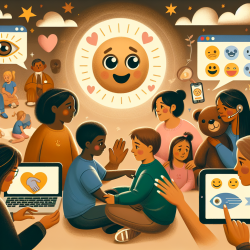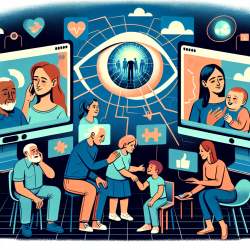Recent research, specifically the scoping review titled "Mental health support for children and adolescents with hearing loss: scoping review," provides valuable insights into the mental health support required for children with hearing loss. As practitioners, leveraging these insights can significantly enhance the outcomes for this vulnerable population.
Key Findings from the Research
The scoping review identified several critical findings:
- A diverse range of interventions exists, including therapy-based approaches, skills training, and physical activities like ice-skating and dance lessons.
- Most interventions showed some evidence of effectiveness, although not always assessed with gold-standard methodologies.
- The majority of studies were conducted in high-income settings, with limited geographical spread.
- Adaptations to interventions were often necessary to accommodate the specific needs of children with hearing loss, particularly in communication methods.
Implementing Research Outcomes in Practice
To improve mental health support for children with hearing loss, practitioners can implement several strategies based on the research findings:
- Peer-Support Programs: Facilitate peer-support groups to reduce isolation and promote social interaction among children with hearing loss.
- Resilience Training: Implement resilience training programs in schools to help children develop coping strategies and emotional regulation skills.
- Parent and Child Training: Provide structured training programs for both parents and children to manage emotional and behavioral challenges effectively.
- Physical Activities: Incorporate physical activities like dance or adapted sports to promote psychological well-being and social interaction.
Adapting Interventions
When adapting interventions for children with hearing loss, consider the following:
- Communication Methods: Ensure that communication needs are met, including the use of sign language and visual aids.
- Physical Environment: Modify the physical environment to facilitate better communication, such as arranging seating in a circle for visual contact.
- Training for Delivery Agents: Provide training for teachers, therapists, and other professionals on the specific needs of children with hearing loss.
Encouraging Further Research
While the current evidence is promising, there is a need for further research to improve the breadth and quality of evidence on mental health support for children with hearing loss. Practitioners are encouraged to contribute to this growing body of knowledge by participating in or conducting research studies.
To read the original research paper, please follow this link: Mental health support for children and adolescents with hearing loss: scoping review.










